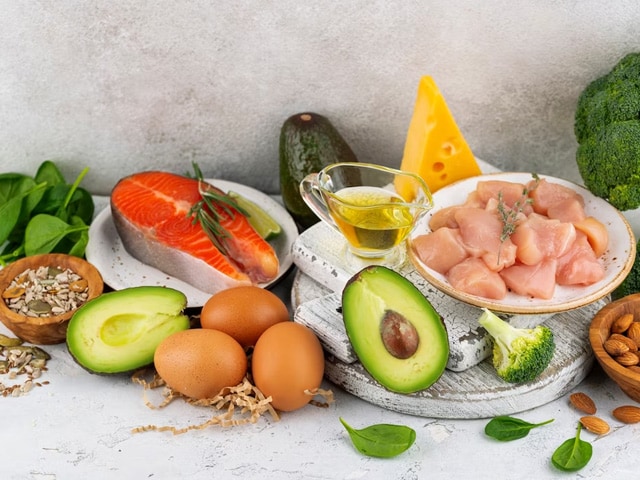Read on as we share a list of protein-rich foods you should add to your daily diet and share tips to help you do so.

To add these sources of protein to your diet, aim for a balanced approach
Protein is an essential macronutrient that plays a crucial role in maintaining our overall health and well-being. It is responsible for building and repairing tissues, producing enzymes and hormones, supporting immune function, and providing energy. Here are some of the best sources of protein, their health benefits, and tips to help you add them to your diet.
10 Best sources of protein and how to add them to your diet:
1. Lean meats
Lean meats include chicken, turkey, lean beef and are excellent sources of high-quality protein. They provide amino acids necessary for muscle growth, repair, and maintenance. Include grilled chicken or turkey breast in salads, sandwiches, or stir-fries. Opt for lean cuts and add them to stews or wraps.
2. Seafood
Seafood such as salmon, tuna, shrimp are rich in protein, omega-3 fatty acids, selenium, and various vitamins and minerals. Omega-3 fatty acids in fish contribute to heart health and reduce inflammation. Enjoy grilled or baked salmon, incorporate tuna in salads or sandwiches, and add shrimp to pasta or stir-fries.
3. Eggs
Eggs are a complete protein source, containing all essential amino acids. They are also rich in vitamins, minerals, and antioxidants. Include eggs in your breakfast by having boiled eggs, scrambled eggs, or omelettes.
4. Greek yogurt
Greek yogurt is an excellent source of protein and calcium. It also contains probiotics that support gut health and digestion. Enjoy Greek yogurt as a snack, mix it with fruits and granola, or use it as a healthier alternative in recipes.
5. Beans and legumes
Beans and legumes such as lentils, chickpeas, black beans are plant-based sources of protein, fibre, and various vitamins and minerals. They contribute to heart health, aid digestion, and regulate blood sugar levels. Add lentils, chickpeas, or black beans to soups, stews, salads, or make hummus for a delicious dip.
6. Quinoa
Quinoa is a nutritious grain-like seed that contains all essential amino acids. It is gluten-free, high in fibre, and a good source of iron and magnesium. Use quinoa as a substitute for rice or pasta, in salads, or as a side dish.
7. Nuts and seeds
Nuts and seeds such as almonds, chia seeds, pumpkin seeds are packed with protein, healthy fats, fibre, vitamins, minerals, and antioxidants. They promote heart health, boost brain function, and reduce inflammation. Incorporate almonds, chia seeds, or pumpkin seeds into your smoothies, salads, or enjoy them as a snack.
8. Cottage cheese
Cottage cheese also known as paneer is a low-fat dairy product that is rich in protein and calcium. It aids in muscle recovery, supports bone health, and provides satiety. Add cottage cheese to salads, enjoy it with fruits, or use it as a base for curries.
9. Tofu and tempeh
Tofu and tempeh are soy-based products that are high in protein, iron, and calcium. They are excellent alternatives for vegetarians and vegans. Incorporate tofu or tempeh into stir-fries, add them to sandwiches or salads, or use them in vegetarian/vegan dishes.
10. Dairy products
Dairy products are good sources of protein, calcium, and other essential nutrients. They support bone health, strengthen the immune system, and aid muscle growth. Enjoy milk or cheese as part of your meals, or use them in cooking and baking.
To add these sources of protein to your diet, aim for a balanced approach. You can include them in your meals and snacks throughout the day, ensuring you’re getting an adequate amount of protein to support your overall health and nutrition.
Disclaimer: This content including advice provides generic information only. It is in no way a substitute for a qualified medical opinion. Always consult a specialist or your own doctor for more information. NDTV does not claim responsibility for this information.








